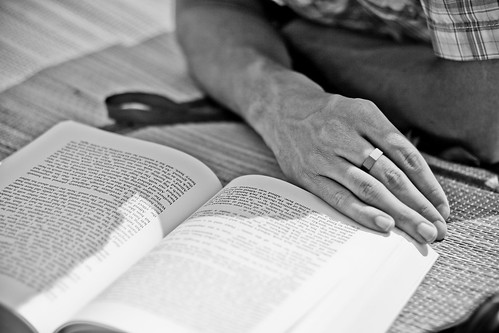irritable vowel syndrome
2.6.09Every so often I go through these periods of intense verbosity. If I open my mouth to breathe, it is likely that a word or six might slip out. I used to attribute this affliction to sitting quiet and serene all day, vocally isolated in my cube, unable to talk about the things I want to talk about. So, of course, at times like these I tend to write instead. Of course I have to hold off until appropriate times - when I have some sort of union sanctioned break - but when those moments come I dive into the pool of words in my mind and swim furiously through them, slicing through sentences, kicking up a frothy mess of ideas behind me. I think I frighten some people with my verbal onslaught. Not everyone knows what would be an appropriate response. And there is of course no appropriate response. I will keep on writing, I will continue talking, I will be continually processing. I'm not going to pretend to be something I am not.
I read a great article the other day by Sam Anderson in New York Magazine entitled, In Defense of Distraction. One of my dear and darling friends had shared the article on Facebook with a tongue-in-cheek sort of comment asking for a summary of this 8 page piece on how we have short attention spans and don't read long articles anymore. My interest was of course piqued and I was not disappointed. I'm constantly battling my inner demons when it comes to social media and the pull I feel between real life and online interactions. Are new communications technologies hindering our real work or providing new opportunities for both personal and professional growth? Are we being distracted to the point that everything we do is trivial? I liked Anderson's perspective on this challenge of distraction, particularly his introduction.
It's just too late to retreat to a quieter time. Our jobs depend on connectivity. Our pleasure cycles - no trivial matter - are increasingly tied to it. Information rains down faster and thicker every day, and there are plenty of non-moronic reasons for it to do so. The question, now, is how successfully can we adapt.
I like to think I'm a discerning individual. I don't read all of the links that people post on facebook, I may not read every RSS feed that pops up in Google Reader throughout the day. This is no different than my selection of what magazines to read, what tv shows or films I choose to watch, or what I choose to take photographs of. What I do is inherently my choice - and I choose to do things that I feel are of some value to me. I like to create links between the things I am doing, the information I am digesting. I would hope that other people think this way too, because these linkages are fascinating. A teacher of mine once said, everything is interconnected, a statement that has stayed with me for the past ten years. Everything is interconnected is sort of like my pair of rose coloured glasses through which I view the world. I take conversations and connect them with books or articles I've read, videos I've watched. Perhaps this type of thinking is a result of growing up with technology (as John Seeley Brown describes as multi-processors who think in a hyperlinked fashion (not linear)). However, as much as I am willing to attribute the way I think to the technologies I grew up using, I think that my eagerness to draw links between things has always been a part of me. I've always been prone to distraction. Distraction - that is - the ease of which I will take off on some tangent of thought, is part of my creative process. As Anderson writes,
The most famous moment in all of Proust, the moment that launches the entire monumental project, is a moment of pure distraction: when the narrator, Marcel, eats a spoonful of tea-soaked madeline and finds himself instantly transported back to the world of his childhood. Proust makes it clear that conscious focus could never have yielded such profound magic: Marcel has to abandon constraints of what he calls "voluntary memory" - the kind of narrow, purpose-driven attention that Adderall say, might have allowed him to harness - in order to get to the deeper truths available only by distraction. That famous cookie is a kind of hyperlink: a little blip that launches an associative cascade of a million other subjects. This sort of free-associative wandering is essential to the creative process; one moment of judicious unmindfulness can inspire thousands of hours of mindfulness.
Beautiful. I couldn't agree more. I felt somehow vindicated after reading this. As if all my thoughtful wanderings were somehow justified. And so I will continue. Currently I'm processing a fascinating lecture and accompanying paper by the Elizabeth Coleman, President of Bennington College in Vermont, about reforming higher education through a new blend of liberal arts. And how did I get here? Free-associative wandering with some help from the internet but directed by recent conversations I've been having with friends and coworkers. Oh the delights of distraction. Now I've got something else to put my words towards.



0 comments